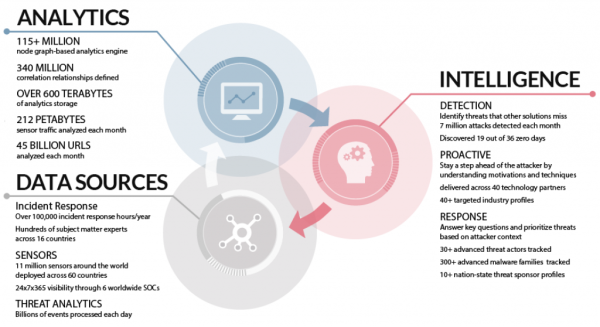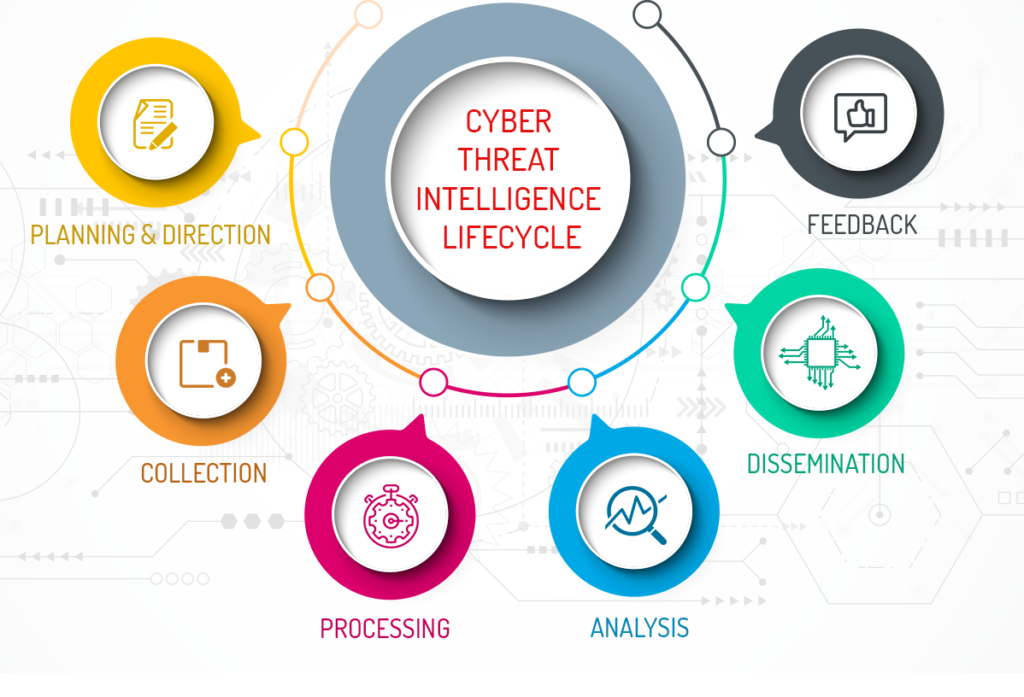
As the digital landscape continues evolving, so do the risks linked to cyber threats. Organizations across various industries invest heavily in cybersecurity to protect their assets and data.
Cyber threat intelligence (CTI) is critical in identifying, preventing, and mitigating cyber threats. We will delve into the dynamic and lucrative world of cyber threat intelligence salaries. We will explore the factors influencing CTI compensation, the critical job roles, and essential skills that can help professionals thrive in this challenging and rewarding field.
Understanding the Role of Cyber Threat Intelligence
Cyber threat intelligence involves gathering, analyzing, and interpreting data related to potential and existing cyber threats.
It assists organizations in maintaining a proactive edge ahead of cybercriminals by proactively identifying vulnerabilities and implementing robust security measures. CTI professionals monitor the cyber landscape, assess risks, and provide actionable insights to security teams, aiding in the defense against cyber attacks.

Factors Influencing Cyber Threat Intelligence Salaries
Several factors influence the salaries of cyber threat intelligence professionals. These factors vary based on geographic location, industry, job role, experience, and education level.
Here are the key factors that shape CTI compensation:
a. Geographic Location: Salaries can differ significantly based on the cost of living and demand for CTI professionals in a specific region. Cities with a high concentration of cybersecurity firms or government agencies may offer higher salaries to attract top talent.
b. Industry: The industry in which a CTI professional works can impact their salary. For example, financial institutions and government organizations may offer higher salaries compared to smaller companies or nonprofit organizations.
c. Job Role and Hierarchy: The role and level of responsibility within the CTI team also influence salary. Senior-level positions such as CTI Managers or Directors typically command higher compensation.
d. Experience and Education: Experienced CTI professionals with a proven track record and relevant certifications often earn more than entry-level candidates. Higher education, such as a master’s or PhD in cybersecurity, can also lead to better-paying opportunities.
e. Skills and Certifications: Specialized skills and industry-recognized certifications, such as Certified Information Systems Security Professional (CISSP) or Certified Cyber Threat Intelligence Analyst (CCTIA), can significantly impact salary offers.
Read also: The Evolution of Tech Mobile App
Key Job Roles in Cyber Threat Intelligence
Cyber threat intelligence offers diverse career paths, catering to professionals with varying skill sets and interests. Some of the critical job roles in CTI include:
a. Threat Intelligence Analyst: Responsible for monitoring, analyzing, and reporting on potential and emerging threats. They identify patterns and trends to help improve cybersecurity defenses.
b. Threat Intelligence Manager: Oversee the CTI team and collaborate with other security departments. They develop strategies to enhance threat intelligence operations and ensure effective threat response.
c. Cybersecurity Analyst: While not solely focused on threat intelligence, cybersecurity analysts play a vital role in detecting and mitigating cyber threats. They work closely with the CTI team to implement security measures based on intelligence insights.
d. Incident Response Specialist: Rapidly respond to cybersecurity incidents and coordinate with the CTI team to understand the nature and origin of the threat.
e. Cybersecurity Consultant: External consultants who provide expertise to multiple organizations, offering insights into the current threat landscape and recommending security measures. Cyber Threat Intelligence Salary.
People also asked: What Do Cyber Threat Intelligence Professionals Earn?
Essential Skills for Success in Cyber Threat Intelligence
To excel in the field of cyber threat intelligence and command a competitive salary, professionals should cultivate the following essential skills:
a. Technical Proficiency: A strong foundation in information security, networking, and operating systems is crucial for effectively analyzing and responding to cyber threats.
b. Analytical and Critical Thinking: CTI professionals must think critically to connect disparate data points and derive actionable intelligence from vast datasets.
c. Cyber Threat Landscape Awareness: Stay up-to-date with the latest cyber threats, attack vectors, and threat actors to anticipate potential risks.
d. Communication Skills: Effective communication is vital for conveying complex technical information to non-technical stakeholders and collaborating with different teams.
e. Programming and Scripting: Knowledge of programming languages like Python, PowerShell, or JavaScript can be beneficial for automating CTI processes.
f. Open-Source Intelligence (OSINT) Gathering: OSINT skills help gather threat intelligence from publicly available sources to enrich existing data.
g. Incident Response and Threat Hunting: Proficiency in incident response methodologies and threat hunting techniques is crucial for identifying and mitigating cyber threats.
Certifications and Training in Cyber Threat Intelligence
Obtaining relevant certifications can boost a professional’s credibility and earning potential. Some of the sought-after certifications include:
- Certified Information Systems Security Professional (CISSP)
- Certified Cyber Threat Intelligence Analyst (CCTIA)
- Certified Cyber Threat Hunting Professional (CCTHP)
- GIAC Cyber Threat Intelligence (GCTI)
- EC-Council Certified Threat Intelligence Analyst (C|TIA)
Training programs, workshops, and webinars by renowned cybersecurity organizations also provide valuable insights and practical experience for aspiring CTI professionals.
Conclusion
The field of cyber threat intelligence offers an exciting and financially rewarding career path for individuals passionate about cybersecurity.
As organizations recognize the critical importance of proactive cybersecurity measures, the demand for skilled CTI professionals continues to rise.
Understanding the factors influencing cyber threat intelligence salaries, exploring key job roles, and acquiring essential skills and certifications can pave the way for a prosperous career in this ever-evolving industry.
Whether just starting or looking to advance your CTI career, continuous learning and staying ahead of emerging cyber threats are vital for sustained success in this challenging and essential field.

Leave a Reply